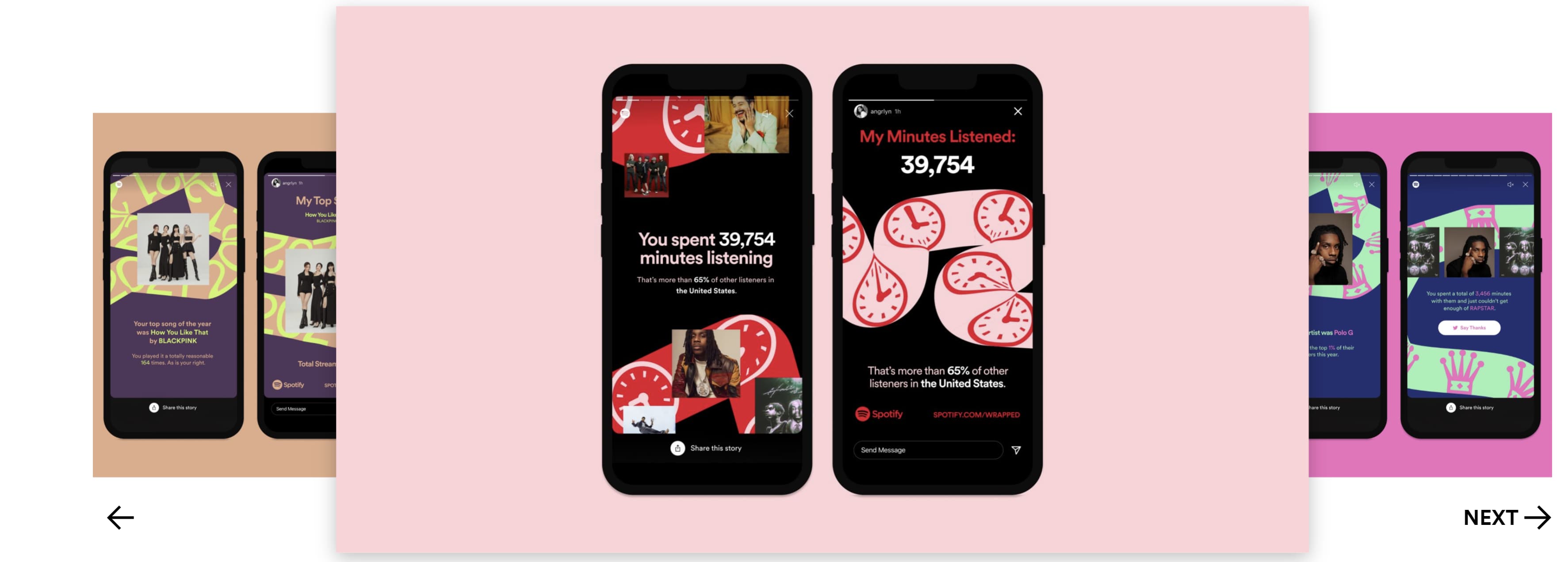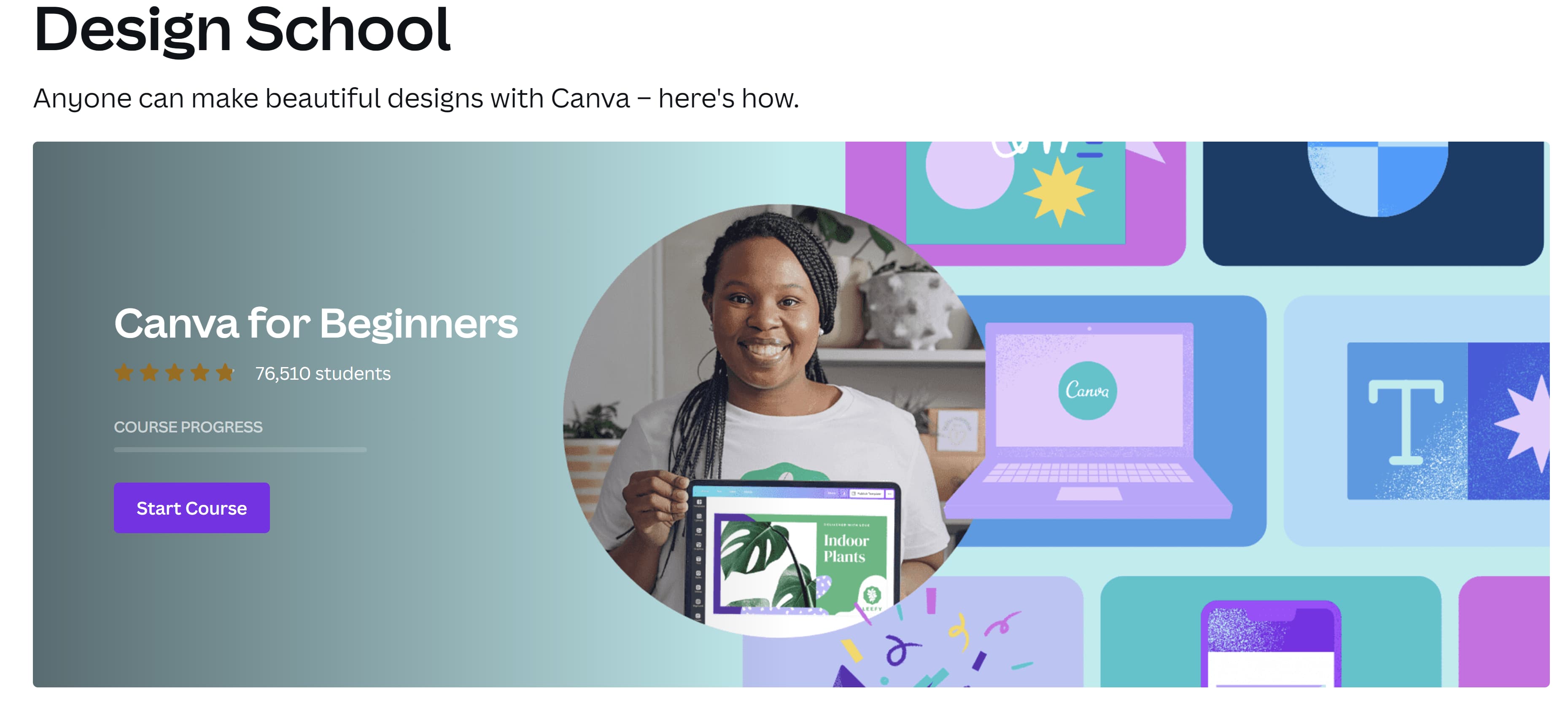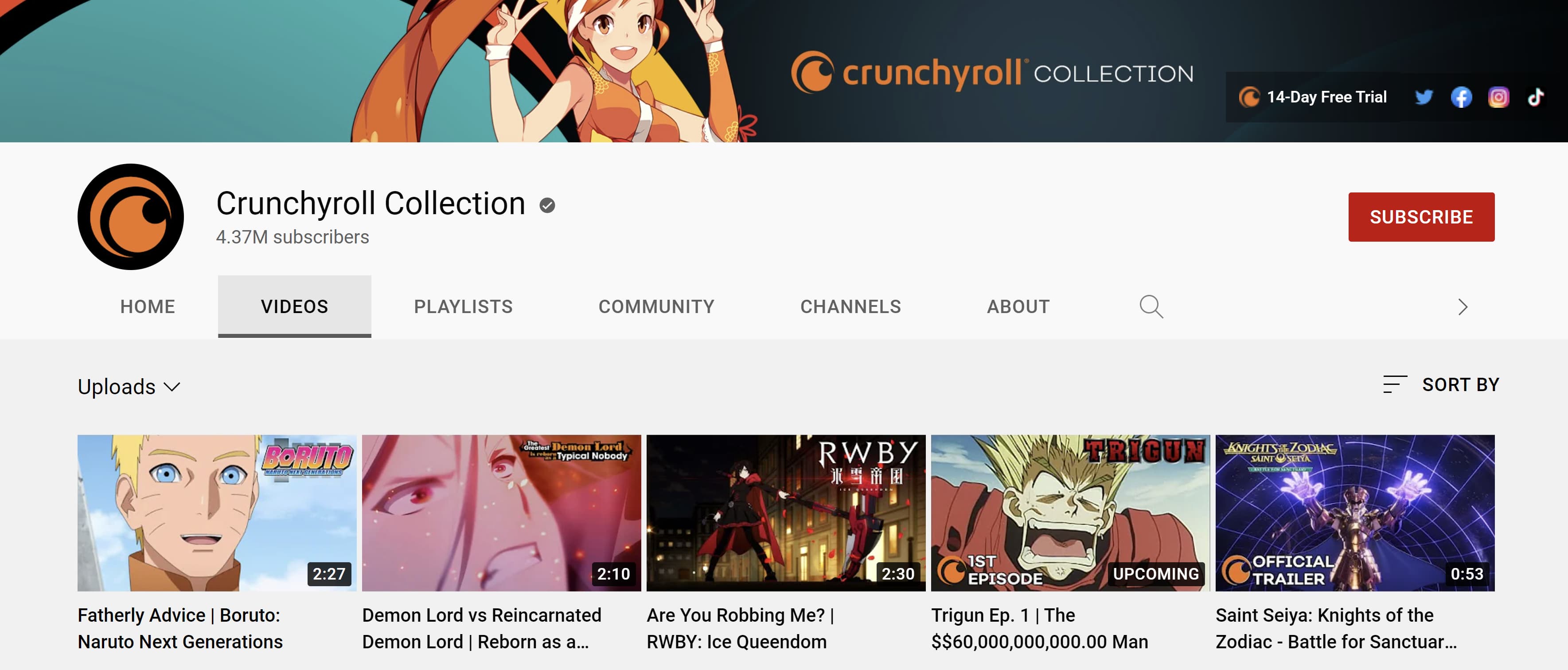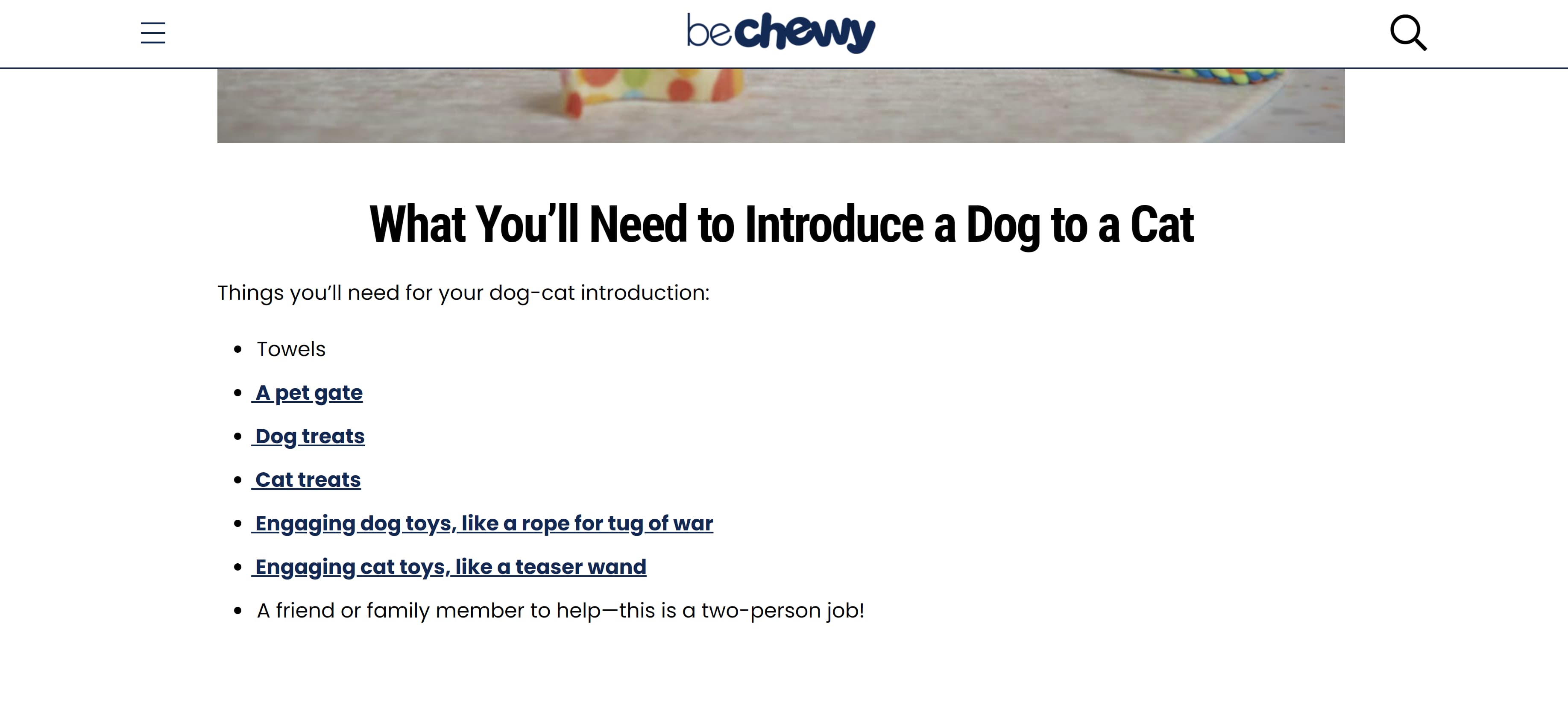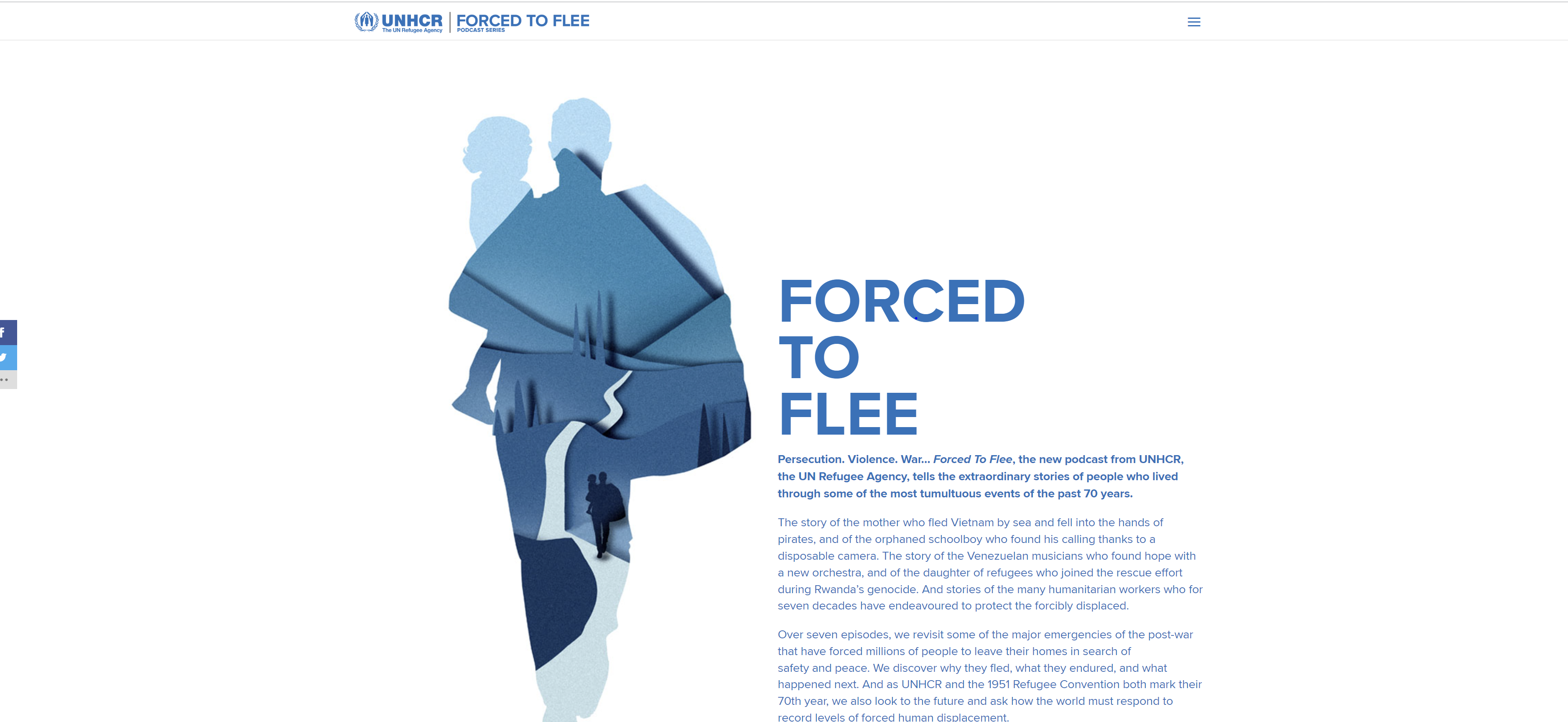20 Content Marketing Examples That Stand Out in 2022
Do you remember a time where a piece of content made you a longtime fan of a particular brand or company? Maybe it was a funny YouTube video or a super informative blog post — both of which are content marketing examples.
Content marketing examples include media like newsletters, podcasts, social media posts, and videos. All of these forms of content are meant to provide useful and relevant information that delights users and attracts them to your brand.
To help you use content marketing to your company’s advantage, here are some of my favorite content marketing examples of 2022.
1. Spotify Wrapped Playlists
Spotify Wrapped is one of the music streaming app’s most successful content marketing campaigns. Near the end of every year, Spotify users get a fun roundup of all the music they’ve listened to that year. The roundup is broken down into genres, years, artists, and more, and is displayed with brightly colored graphics.
It then creates a personalized playlist of the user’s most listened to songs, and users have the option to share their wrapped playlists on social media — a key element that has made the campaign to trend on social media every year since its inception.
2. DuoLingo’s TiKTok
You likely know DuoLingo as the website and app that helps users learn a new language, but the company has generated buzz on TikTok for another reason — the company’s self-proclaimed “unhinged” mascot.
DuoLingo has amassed over 4.5 million followers on TikTok thanks to its consistent stream of content featuring the company’s iconic green owl mascot. Though many of the videos do not mention the company’s products and services, the account’s ability to create funny, trendy content has helped raise brand awareness on the app — something many brands struggle to do.
3. Canva’s Design School
Canva’s Design School provides value to its users by teaching them how to create engaging images with minimal design experience and without complicated software. It also does a great job of showing all the design possibilities Canva has to offer.
4. Hairstylist Theresa Van Dam’s TikTok
Theresa Van Dam is a hairstylist and owner of the Fantastic Sams Salon in Lenox, Illinois. Her TikTok account is famous for her skits that show how she deals with rude customers — all of whom she calls “Karen.”
Her content is often praised for being relatable to anyone who has ever had to deal with unruly customers.
This relatable approach to content works because while TikTok users come to the account for laughs, they are also shown videos of her excellent work as a stylist. Her TikTok now has 4.9 million followers, and Theresa has said often in her videos that she now has so many customers she often requires new ones to book her months in advance.
5. Girl With The Dog’s YouTube Channel
Girl With The Dog’s is a YouTube channel run by a professional pet groomer named Vanessa, owner of Perfect Pooches Dog Grooming in Ontario Canada.
The channel features excellent content marketing by providing entertainment for viewers while also showing off her skills as a groomer — I mean, who doesn’t like to see dramatic huskies screaming at a little blow dryer?
As a result of her content marketing efforts, Vanessa’s channel now has 1.5 million followers — and her clientele has grown to include cats and the occasional pig. She was also able to raise enough money to donate to animal sanctuaries.
6. Crunchyroll Collections
Crunchyroll is a U.S.-based company that licenses, distributes, and streams anime around the world. One of the ways Crunchyroll markets itself online is through YouTube via its Crunchyroll Collections channel. Crunchyroll Collections hosts clips and compilation videos of highly searched moments from popular anime.
This type of content marketing engages viewers, keeps the brand at the top of search results for popular anime, and shows how broad the company’s catalog is — encouraging viewers to subscribe to its streaming service. Notice there is even a button in the channel’s banner that viewers can click to start a 14-day free trial if they want more content.
7. Chewy’s YouTube Channel
Chewy is an online retailer of pet products that has found a unique way to promote its different products. Chewy’s YouTube channel is full of advice regarding pets, training, and animal health. It also features educational videos, like “A Day in the Life of a Special Needs Cat Rescue and Sanctuary.”
In most videos, Chewy provides valuable information while tying in their products. For example, in the video “How to Introduce a Dog to a Cat,” the company lists the materials needed to introduce the two animals — showing all the different products they sell.
Furthermore, the description of the video includes a link to a post on the company’s blog that gives more information. The blog post also provides links to where pet owners can buy the materials they need off the official Chewy website. This encourages viewers to visit its website and make purchases.
8. Amazon Prime’s The Anime Club
Anime has become more popular over the years, and many streaming services are cashing in on the trend — including Amazon Prime. But how does Amazon stand out among the stiff competition of Crunchyroll, Netflix, and Hulu? It started by partnering with actress and content creator Cheyenne The Geek to create a web series called The Anime Club.
The Anime Club gives anime recommendations based on genre and tackles different topics often referenced in anime. All the anime Cheyenne references are available to watch on Amazon Prime, encouraging viewers to subscribe to the streaming service.
9. UN Refugee Agency’s “Forced to Flee” Podcast
The UN Refugee Agency’s Webby Award-nominated podcast helps raise awareness for refugees by telling their unique and heart wrenching stories. This form of content marketing is compelling, leaves the audience with a better understanding of a refugee crisis, and shows the importance of agency’s work.
10. The Washington Post’s TikTok
The Washington Post’s TiKTok takes a comedic approach to history, news, and politics — appealing to its 1.4 million followers. The account also links to the Washington Post’s website.
11. Jackson Galaxy’s YouTube Channel
Jackson Galaxy is the former host of Animal Planet’s “My Cat from Hell,” a show that cat owners get along better with their unruly cats. Now, he has a website where he sells cat products and consultations.
To help promote his work and establish himself as an expert, Jackson runs a YouTube channel where he answers common questions regarding cats and cat ownership. In these videos, he provides advice, promotes his book, and showcases the products he has on his website that can help cat owners.
You Suck at Cooking started off as a funny YouTube channel that showed people help to cook simple meals. Years later, the channel is still hilarious but is also used to promote the host’s cookbook. The channel’s dry humor, random skits, and running gags help it stand out from other online self-help cooking resources.
13. Warby Parker’s Email Marketing
One of the many reason’s Warby Parker stands out from other online glasses retailers is its fun and eye-catching (no pun intended) email marketing campaigns. In the example below, Warby Parker welcomes summer vacation with its bright crystal-themed glasses eyewear. The calls to action in the email are easy to spot, the colors are bright and fun, and the company’s social media accounts are clearly presented.
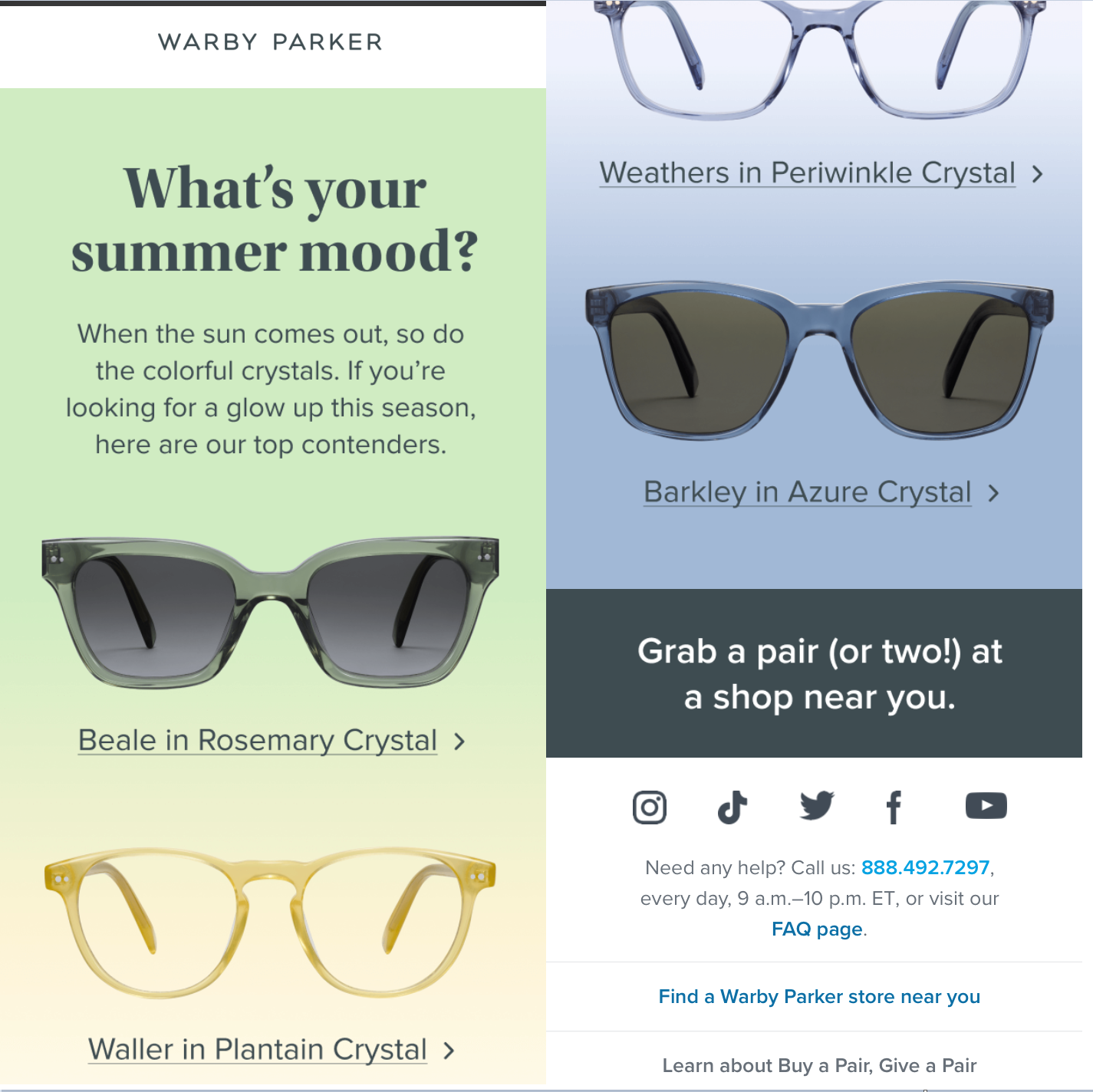 14. Content Marketing Institute’s Click to Tweet
14. Content Marketing Institute’s Click to Tweet
If you make it easy for people to share something interesting with their network, then they’re much more likely to do so. Embedding a “click to tweet” button that automatically shares quotes or statistics from your article is an effective way to do that.
For example, this blog post that I wrote for Content Marketing Institute is the most widely shared guest blog post I’ve ever written:
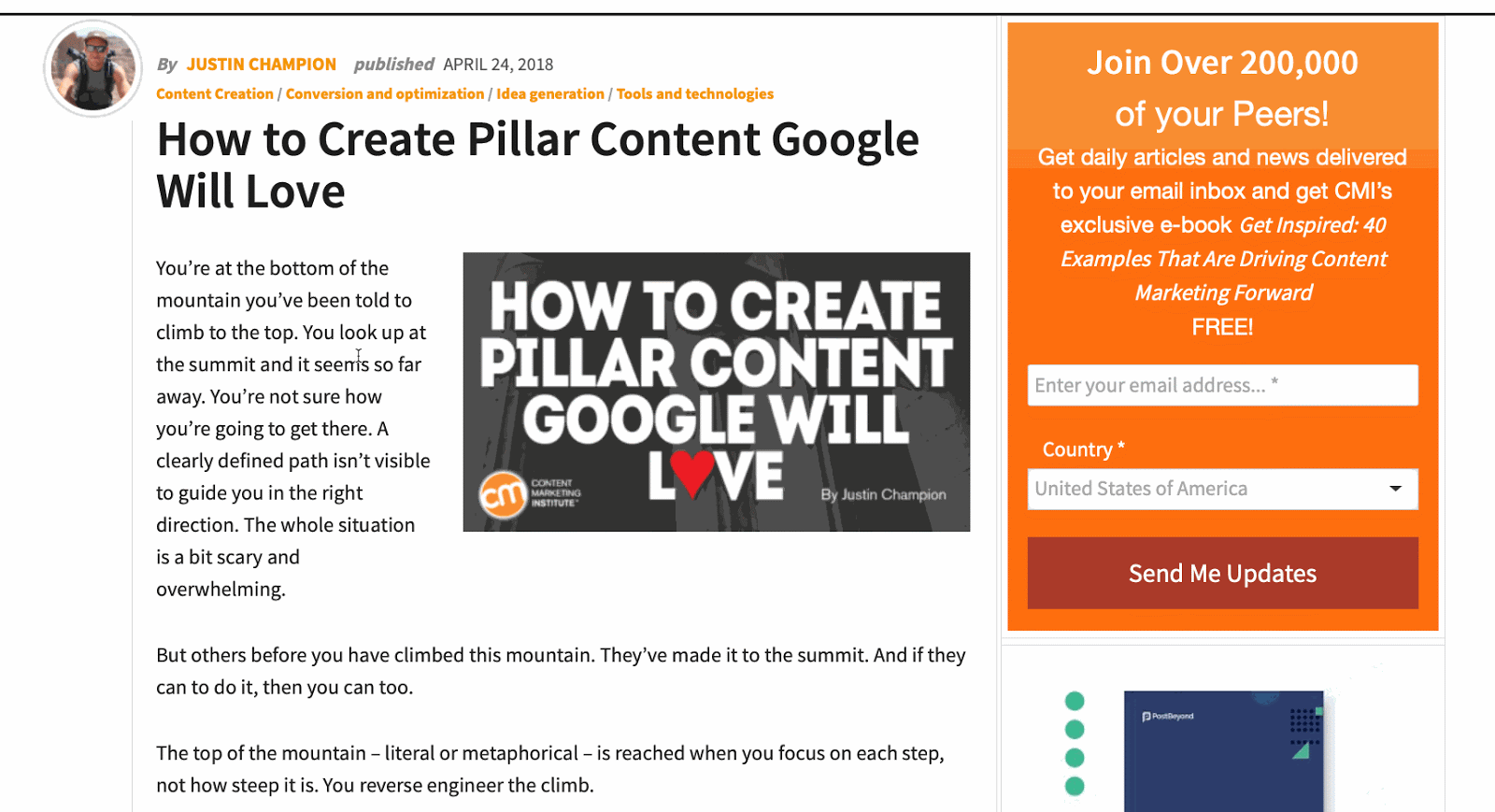
Months after publication, I still get daily Twitter notifications from people tweeting about this article. And the majority of the tweets come from the “click to tweet” option that Content Marketing Institute offers throughout the post.
If you want to start adding “click to tweet” options throughout your website content, check out this free tool.
15. Digital Olympus’s Expert Roundup
No matter what industry you’re in, there are influencers to whom people look for advice.
Digital Olympus interviewed over 40 digital marketing experts for one of their blog posts, asking each expert to provide their most effective method for acquiring traffic.
What I most like about this blog post is how Digital Olympus organizes the contributions. At the top of the page, there’s a headshot of each expert next to their name. If you want to read a particular expert’s tip, you simply have to click on their headshot and you’ll jump down to their quote.
There’s also an anchor-linked Table of Contents that allows for topic-based searches. This way, readers can jump to the specific sections that are most applicable to them.
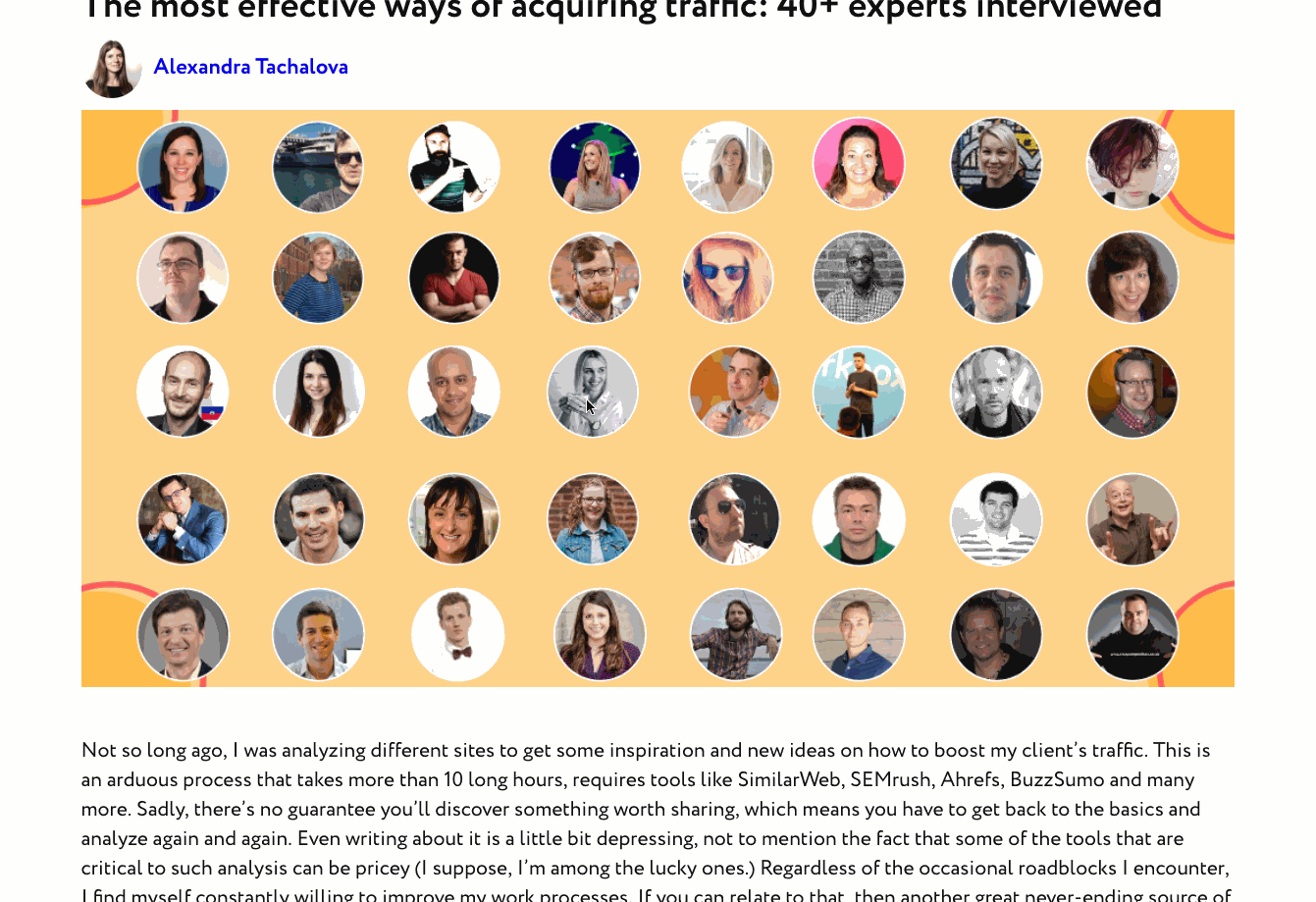
16. Colgate’s Research Page
Creating a resource page made up of helpful links on a given topic is an effective way to create helpful content.
If your business has been producing content for a while, then chances are you have clusters of related content to support the topics around which your business wants to build authority.
For example, oral hygiene company Colgate has over 1,200 pieces of content related to their broad topic “gum disease.”
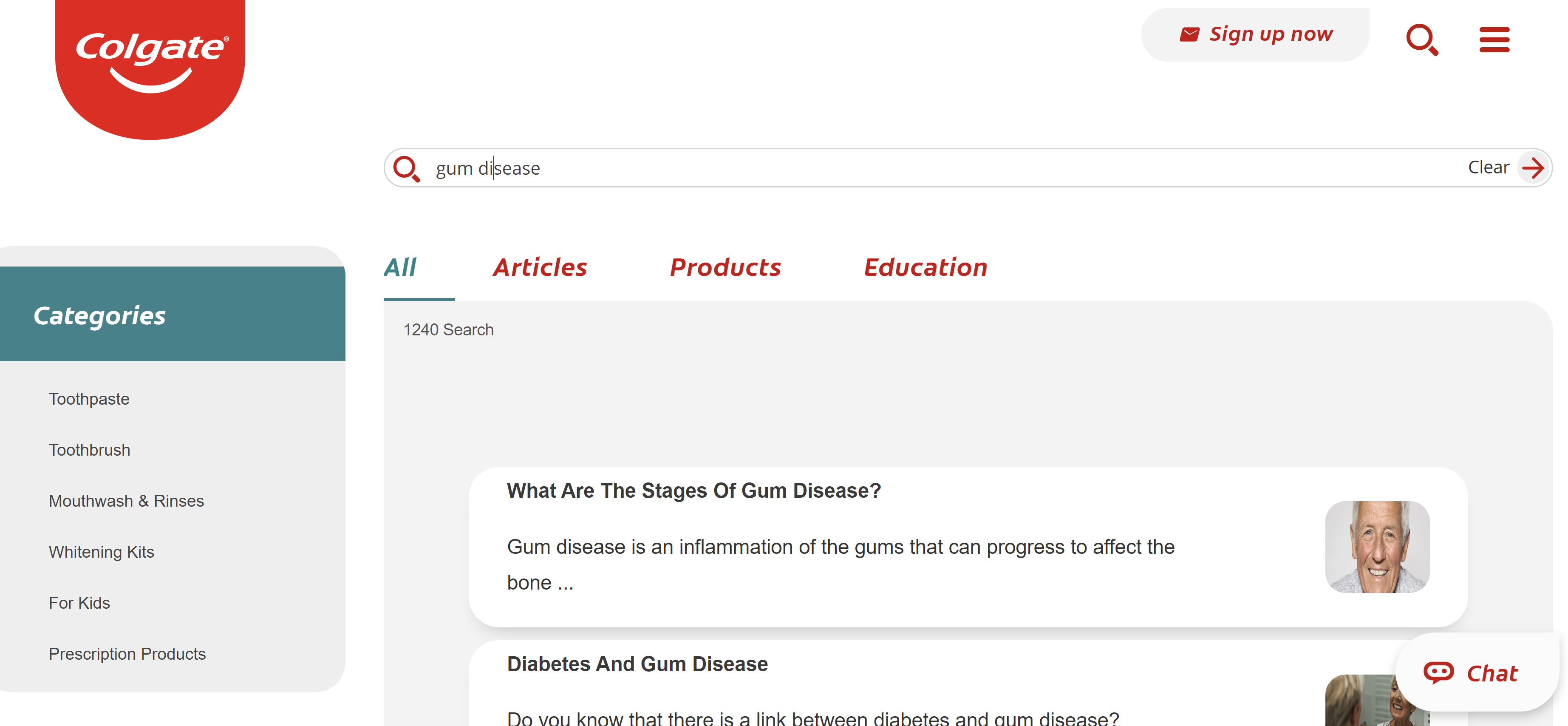
That’s a lot of content to sift through, which is why Colgate created a resource page made up of specific sections of gum disease-related content, like “What are the Stages of Gum Disease?” or “How to Cure Gingivitis.”
Each section offers:
- A paragraph of explainer text
- A bulleted list of details on the sub-topic
- Links to relevant content on their site
17. Moz’s Topic Clusters
The topic cluster framewor is a highly effective SEO strategy that demonstrates to Google that the content on your website is organized and relevant to searchers. To learn more about this framework, watch the video below.
Some brands have taken this approach to the next level by creating a multi-page masterclass or guide that links together like-themed pillar pages. A pillar page is a website page that covers a topic in-depth and links to a cluster of related content, also known as a cluster. One of my favorite examples of this is Moz’s Beginner’s Guide to Content Marketing.
Moz creatively puts a chapter list at the start of each page that links out to more specific content marketing-themed pages within the topic cluster.
Additionally, using an anchor-linked chapter list is an effective way to connect the cluster together — it provides value to the reader while passing authority through to each pillar page.
18. Mailshakes’ Marketing Automation
Marketing automation is a combination of software and strategy. With marketing automation, businesses can target prospects and customers with automated messages across multiple online and offline channels including email, text, web, and social media. Each message is sent automatically according to a pre-set list of instructions, called workflows.
Marketing automation can be an effective tool to keep your audience engaged with your brand, but it’s important to make sure you’re sending the right messages to the right people at the right time.
Mailshake, an email outreach tool, implemented marketing automation effectively by creating a Cold Email Masterclass to teach people how to make better connections via email outreach. The masterclass is made up of eight comprehensive lessons (i.e. pillar pages).
Mailshake knows that this is a lot of content for people to consume, and visitors won’t likely read it all in one sitting.
To make it easier for people to learn step-by-step, Mailshake repackaged their masterclass into an eight-part email series. In other words, they automated their education to help their audience.
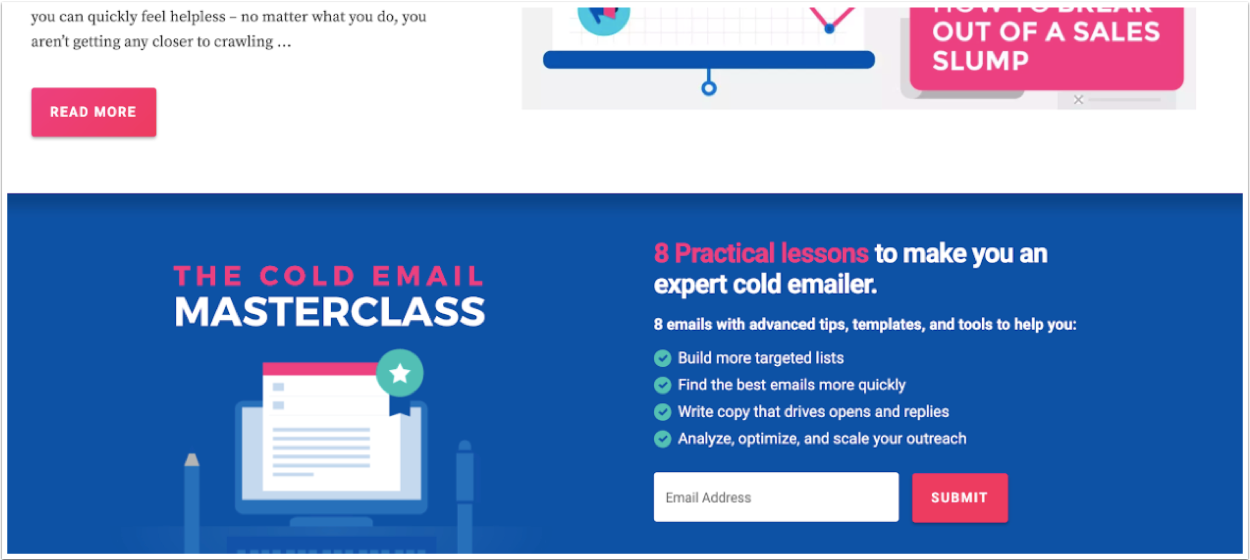
Mailshake acquired 5,321 email opt-ins for their cold email masterclass workflow in under one year — proof that, if done well, this could be an incredibly effective strategy.
19. Townsend Security’s Content Offer
One tried-and-true way to convert visitors into leads is by offering something of value in exchange for their contact information (i.e. email address). This “something” is referred to as a content offer.
Content offers include, but are not limited to:
- Guides
- Workbooks
- Templates
- Webinars
It can take a lot of time to create a valuable content offer from scratch.
One effective way to create a meaningful content offer is to repurpose and repackage pieces of content found on your website. For example, data security company Townsend Security created a pillar page for one of their topics of expertise — encryption key management.
To help convert visitors into leads, Townsend repurposed and repackaged the content on their page into a guide. This allowed people to take the content with them, as opposed to having to search for the pillar page each time they wanted to read about encryption key management.
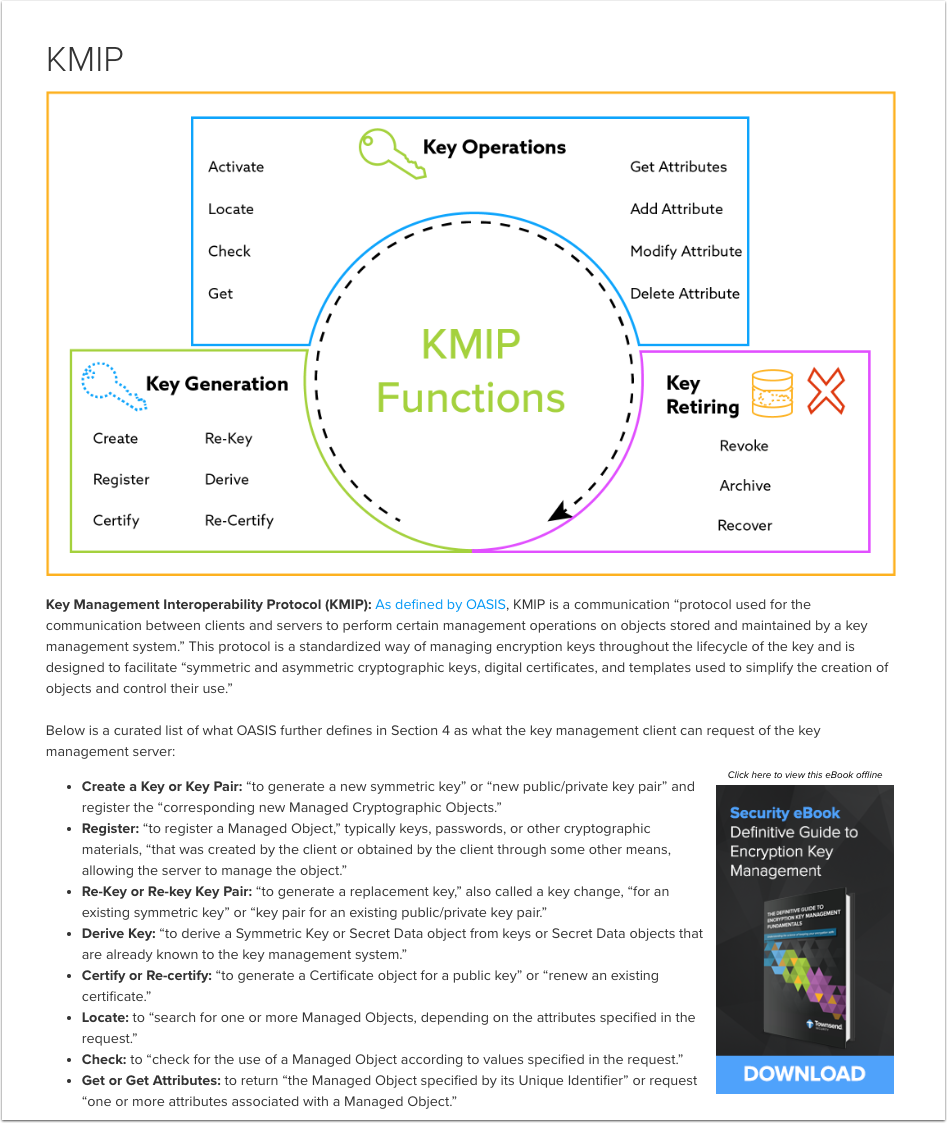
In the first year of publishing their encryption key management pillar page, 63% of visitors gave their information in exchange for a packaged PDF of the on-page content.
20. Venngage’s Free Product
Your product should be your best marketing. An effective way to provide real value to your prospects is to create a free tool that aligns with your products and/or services.
If you can get a free user hooked on one of your free tools, then you’re giving yourself (and your sales team) the best chance at demonstrating the value of your paid tools, too.
Let’s say, for example, that you’re a writer who needs help with creating visuals for the web content you create. You might consider using Venngage, a company that helps businesses create compelling visuals. In the free version of their platform, users get access to a wide variety of templates for infographics, presentations, brochures, checklists, and so on.
In the future, when your marketing team is considering paid products for design, you’ll have Venngage top-of-mind.

And there you have it — 20 content marketing examples to help get your creative juices flowing. Consider how you can apply one (or several) of these examples to your business to strengthen your content marketing efforts.
We live in a fast-paced digital world. In the time you read this blog post, a new channel, a new tactic, or a new competitor has emerged. The best chance you have at telling your business’s story and growing a pool of engaged prospects and customers is by learning the art of content marketing — and starting to apply it to your business, today.
![]()



